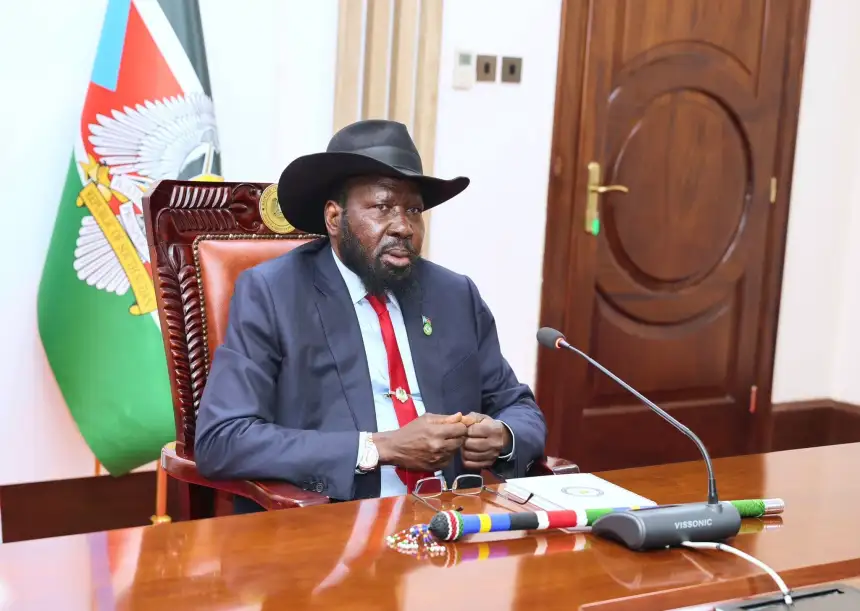South Sudan’s President Salva Kiir has dismissed Vice President Dr. Benjamin Bol Mel, just eight months after appointing him, in a move that has sent shockwaves through Juba’s political establishment.
A presidential decree issued on November 12 announced Mel’s removal as Vice President and his dismissal from the National Security Service (NSS). Kiir also demoted the once-powerful general to the rank of Private, citing provisions of the National Security Service Act, 2014.
Mel’s downfall appears to be part of a wider political shake-up. His close ally, Addis Ababa Othow, was sacked as Governor of the Bank of South Sudan and replaced by Yeni Samuel Costa. Another associate, Simon Akuei, was removed as Commissioner General of the South Sudan Revenue Authority, with William Anyuon Kuol taking over. Paul Logale was also relieved of his duties as SPLM Secretary General, replaced by Akol Paul Kordit.
The changes come amid reports that security at Mel’s residence had been scaled down, sparking speculation that he was under house arrest. His removal marks a stunning reversal for the 52-year-old politician, who had been viewed as President Kiir’s preferred successor.
Mel, previously sanctioned by the United States in 2017 over corruption allegations, was recently accused by the United Nations Commission on Human Rights in South Sudan (CHRSS) of systematic looting. The report titled “Plundering a Nation” claimed Mel and his associates diverted billions of dollars in public funds, worsening the nation’s poverty and food crisis.
Observers believe Kiir’s move may be a response to mounting international pressure following the UN findings. With Mel’s dismissal, the political landscape in South Sudan faces new uncertainty as questions emerge over who will succeed Kiir and how this shake-up will affect the country’s fragile stability.

